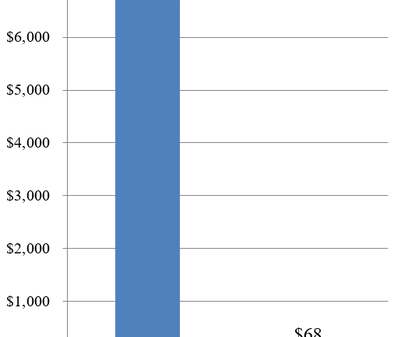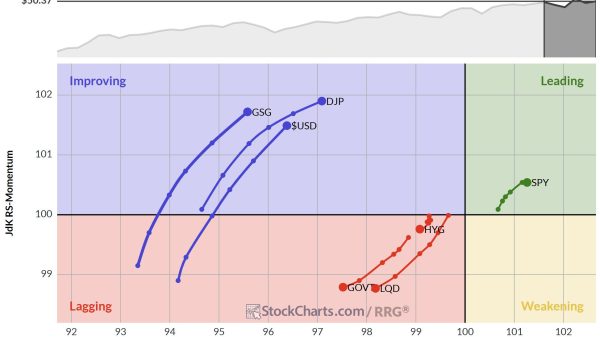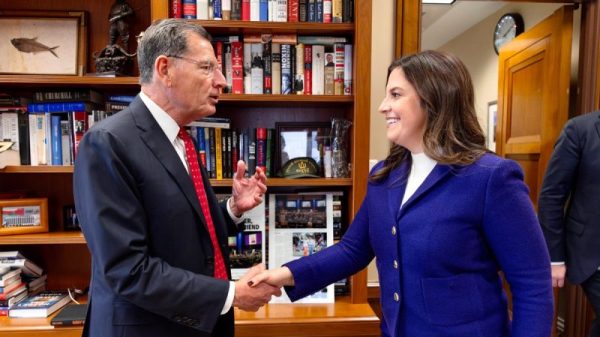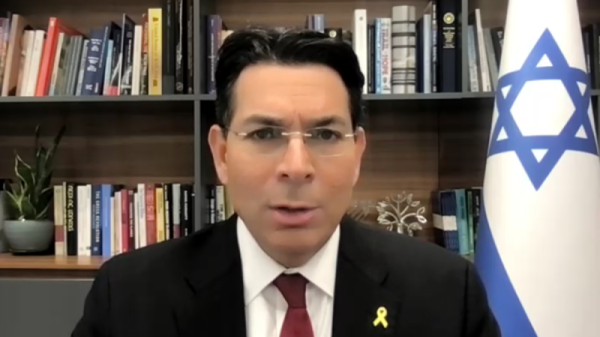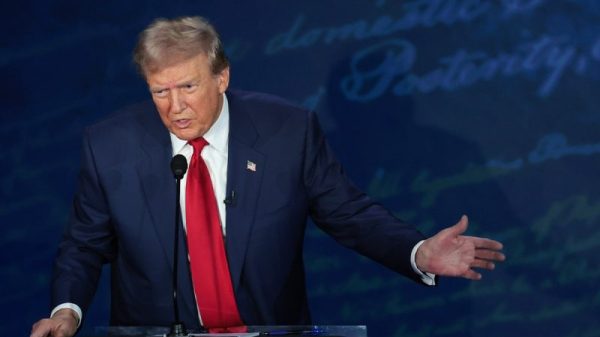
The Federal Communications Commission expedited a decision to allow Democrat megadonor George Soros to obtain a major stake in more than 200 radio stations—a move the House Oversight Committee is investigating amid concerns of ‘politicization’ and interference in the 2024 presidential election.
The FCC seemingly approved a deal that would approve left-wing billionaire George Soros’ acquisition of more than 200 Audacy radio stations across America, irking a Republican commissioner who ‘objected.’
The New York Post first reported that the FCC last week ‘adopted an order to approve Soros’ purchase of more than 200 radio stations in 40 markets just weeks before the presidential election,’ potentially allowing the far-left kingmaker to reach more than 165 million Americans at a critical time.
According to House Oversight Committee Chairman James Comer, R-Ky., and Rep. Nick Langworthy, R-N.Y., the FCC expedited a required review of broadcast licenses by bypassing its standard procedures and processes.
Comer and Langworthy penned a letter to FCC Chair Jessica Rosenworcel requesting documents and communications to understand the FCC’s actions.
Audacy Inc. owns more than 200 radio stations. Soros is attempting to purchase $415 million in debt in a chapter 11 reorganization of the company.
Comer and Langworthy warned that Soros is a financier of organizations ‘advocating for speech restriction and censorship of conservatives online.’
‘He will ultimately become a ‘major’ shareholder when the bankruptcy deal concludes,’ they wrote.
But Comer and Langworthy warned that Soros has ‘sought to consolidate control over the airwaves.’
‘For example, Soros Fund Management is investing in podcast platforms and purchasing radio stations in major media markets, which has ramifications for what Americans hear and influences political dialogue in this country,’ they wrote. ‘Indeed, 31 percent of all media consumption in the United States consists of audio, even more than television consumption at 24 percent.’
Comer and Langworthy said that the Audacy Inc. deal would lead to the company being partially ‘directly or indirectly controlled’ by ‘foreign individuals or entities holding more than one-fourth of the capital stock.’
The deal would require FCC approval to determine whether ‘the public interest will be served by the refusal or revocation of such license.’
‘In carrying out this statutory mandate under the Communications Act, FCC has years-long established processes and procedures for adjudicating broadcast licenses in such situations, most recently updated in 2016,’ they wrote.
The lawmakers reminded that during a hearing before their committee, FCC Commissioner Brendan Carr noted FCC rules pertaining to foreign ownership of radio stations, and how the FCC, in this case, ‘is not following its normal process for reviewing a transaction.’
‘Commissioner Carr further noted that ‘the full commission itself has never signed off on a shortcut like this. What we usually do is we require people to file a petition with us. We bring in national security agencies, they can review the foreign ownership… Here, they’re trying to do something that’s never been done before at the commission level,’’ they wrote, adding that Carr ‘noted that the national security review could take ‘3 to 4 to 5 to 6 months’ saying further that ‘[i]t looks like we got the cart before the horse this time.’’
Comer and Langworthy said that ‘despite the unprecedented nature of this action, the FCC majority has apparently decided to approve licenses on an accelerated timeframe for a company in which George Soros has a major ownership stake, and with stations in 40 media markets reaching ‘more than 165 million Americans.’’
‘By all appearances, the FCC majority isn’t just expediting, but is bypassing an established process to do a favor for George Soros and facilitate his influence over hundreds of radio stations before the November election,’ they wrote.
Comer and Langworthy are demanding records between Jan. 7, 2024 and the present, and giving the FCC a deadline of Oct. 3.
A Soros spokesperson did not immediately respond to Fox News Digital’s request for comment.
An FCC spokesperson told Fox News Digital that it received the letter from Comer and ‘will respond as we regularly do.’
As for the Audacy transaction, the FCC spokesperson told Fox News Digital that the Audacy ‘application before the Commission pertains to a transfer from Audacy in bankruptcy, to Audacy post-bankruptcy.’
‘No decision is final until the Commission releases it, which we have not,’ the spokesperson stressed. ‘Commission-level releases are made available on the main page of the Commission’s website. On a more general note, the Commission has a long-standing process for reviewing transactions that involve emergence from bankruptcy.’
According to officials, the licenses in question would not be transferred to Soros, but rather a transfer from Audacy as a debtor-in-possession to New Audacy. Soros would be a ‘major shareholder’ but ‘he would not be the owner.’
Some inside the FCC object to the notion the move was some sort of shortcut or ‘fast-tracked’ for Soros, pointing to a similar process used to under the previous administration in the bankruptcy proceedings of Cumulus Media in 2018, iHeart Media in 2019, Liberman Television in 2019, Fusion Connect in 2019, Windstream Holdings in 2020, America-CV Station Group in 2021, and Alpha Media in 2021.
Fox News’ Brian Flood contributed to this report.






